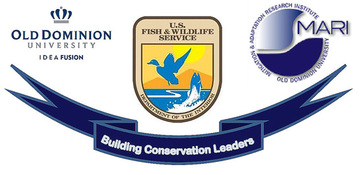Introduction
Creating a more sustainable society presents a serious challenge and at the same time an enormous opportunity. Most sustainability-related challenges present wicked problems to society and can best be addressed in a participatory collaborative approach. The students in this course gained experience in participating in such an effort focusing on a real-world problem.
The real-world problem addressed in this course is that of “meeting the water need of the people in Puerto Rico while safeguarding the freshwater ecosystems.” Each student is representing a relevant stakeholder group and bringing the views, interest and knowledge of this group into the participatory modeling effort. By doing this, the students take leadership for the groups they represent and at the same time integrate into the participatory and collaborate deliberations about a wicked problem. Considering all aspects of balancing the needs of thriving communities and healthy ecosystems in a systems thinking mindset introduces them to complexity. Their effort to develop conceptual and stock and flow models (SFMs) that represent all relevant stocks and flows and the essential variables that are important for impacting the trajectory of the system of systems model helps to develop their skills of addressing the complexity inherent to real-world problems.
Sustainability also requires foresight with respect to the wide spectrum of possible futures, and the students' efforts to develop this foresight utilizes a scenario-based approach to explore the spectrum of possible futures under climate change and a dynamic development of population and economy. Based on an understanding of the relevant decision space in Puerto Rico, the students will develop a set of possible interventions to ensure a trajectory of Puerto Rico towards the desirable future of thriving communities embedded in a healthy environment and they will make recommendations for viable interventions.
The report produced by the students is available here. The students also presented their work at the Orientation Workshop held as part of the IDS 369/GRAD 569 held on July 1-2, 2019 at ODU, see here. A draft video is documenting “Learning through Experience” based on the service learning time of the OEAS/BIOL/IDS 467 and OEAS/BIOL 567 "Sustainability Leadership" class in Puerto Rico. Watch the video ...
The course benefitted from an award provided jointly by the Course-based Undergraduate Research (CURE) program and the Department of Ocean, Earth and Atmospheric Sciences to further develop the web-based case study tool. A summary is provided by Simpson (2019).
|

The group at Rojo Capo.
Rio Grande De Arecibo
Water management aiming at meeting the water and electricity needs of the people have severe impacts on the freshwater ecosystems in the watershed of the Rio Grande de Arecibo. Lago Coonillas is used for trans-basin water transfer to meet the needs of agriculture in the south (Figure 1), and this has led to Rio Caonillas having extreme low water flows (Figure 2). Further downstream, the Lago Dos Bocas has an associated hydro-power station that utilizes the water flow for the generation of electrical energy (Figure 3). Both reservoir dams completely segment the river system and have severe impacts on the freshwater ecosystem.
ODU students enrolled in BIOL/OEAS/IDS 467/BIOL/OEAS 567 "Sustainability Leadership" carried out a case study on meeting the water needs of the people in Puerto Rico while safeguarding freshwater ecosystems (Figure 5). The Rio Grande De Arecibo is the watershed on which this case study focused.
|






